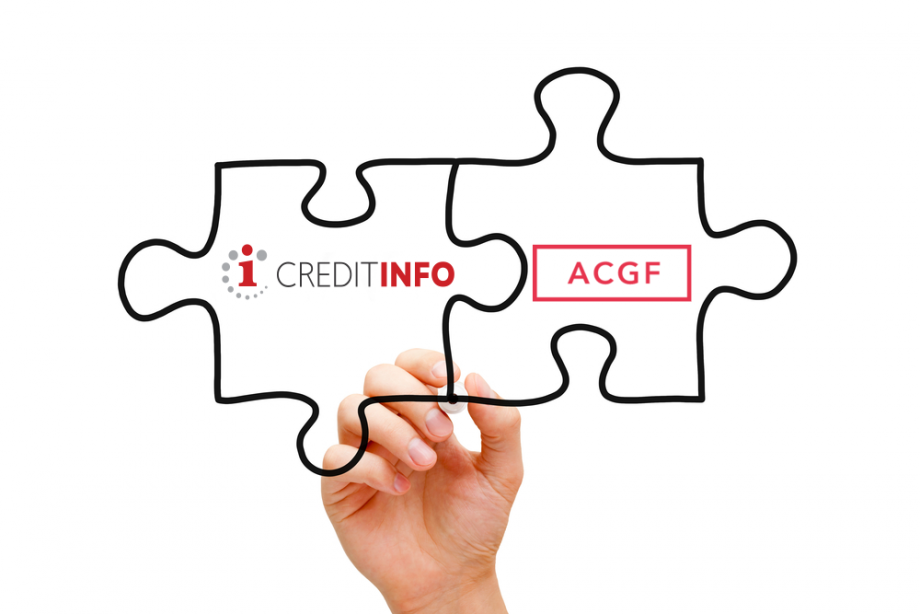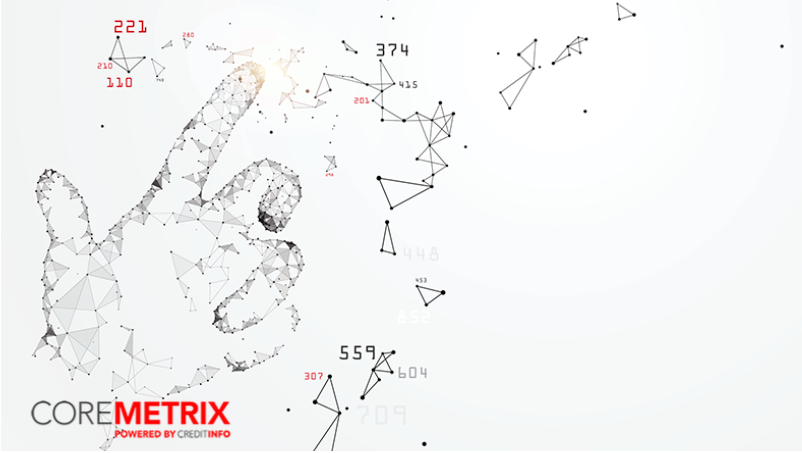Creditinfo & Little App Partner To Enhance financial Inclusion In Kenya

Little App’s new feature gives individuals and businesses instant, on-the-go access to their credit information
Nairobi, 18th June 2025 – Creditinfo, a global service provider for credit information and risk management solutions, has partnered with Little App, one of Africa’s most forward-thinking super apps, to enable Little App users to access their credit reports and monitor their credit scores instantly and securely within the app’s Financial Services section.
With the integration of Creditinfo’s credit bureau data into the app, individuals and businesses can conveniently view their credit information through their mobile devices. Whether applying for a loan, improving creditworthiness, or monitoring one’s financial health, this new feature makes it simple, fast, and user-friendly. Having this information available in one place will help people in Kenya to take control of their finances, make more informed decisions, and access credit with confidence.
“Our partnership with Little reflects more than just a shared goal; it’s a concrete step toward increasing financial inclusion and transparency across Kenya and the African region in the foreseeable future. Data is key to unlocking financial opportunity for people, and our priority is to make access to real-time, reliable credit information simpler and more intuitive. We’re immensely proud to deliver a solution that brings tangible benefits to people’s financial journeys,” said Kamau Kunyiha, Regional CEO East and Southern Africa at Creditinfo.
Kamal Budhabhatti, CEO at Little said: “Africa is undergoing a remarkable digital evolution, with mobile technology transforming how people live and engage with services. Through our collaboration with Creditinfo, we’ve built a solution that meets people where they are – on their phones – and fits seamlessly into their daily lives. We want to demystify complex financial data for everyone, empowering users to make informed decisions while driving lasting social and economic impact.”
-END-
About Creditinfo
Established in 1997 and headquartered in London, UK, Creditinfo is a provider of credit information and risk management solutions worldwide. As one of the fastest-growing companies in its field, Creditinfo facilitates access to finance, through intelligent information, software and decision analytics solutions.
With more than 30 credit bureaus running today, Creditinfo has the most considerable global presence in this field of credit risk management, with a significantly greater footprint than competitors. For decades it has provided business information, risk management and credit bureau solutions to some of the largest, lenders, governments and central banks globally to increase financial inclusion and generate economic growth by allowing credit access for SMEs and individuals.
For more information, please visit www.creditinfo.com
About Little
Little App is a pan-African super app that has been transforming everyday experiences since 2016. With nearly a decade of innovation, Little offers a wide range of tech-driven solutions across mobility, payments, delivery, healthcare, and lifestyle services.
Operating in multiple African countries, Little serves both individual users and organizations—delivering convenience, affordability, and efficiency. From ride-hailing to enterprise transport solutions and digital wallets, Little is at the forefront of enabling digital and financial inclusion across the continent.
For more information, please visit www.little.bz
Credit Bureaus and why they will remain important in the years to come

As the financial industry continues to evolve, credit bureaus need to continue to adapt. There are many compelling reasons why credit bureaus will continue to play a vital role in the future of lending and credit. In this blog, we’ll explore the benefits of credit bureaus and why they will remain important in the years to come.
1. Efficient and standardized credit data
Credit bureaus provide an efficient and standardized way to collect and store credit data. This allows lenders to quickly access the credit history and credit scores of potential borrowers, which is essential for making informed lending decisions. Without credit bureaus, lenders would need to spend more time and resources gathering credit data from various sources, which would slow down the lending process.
2. More accurate credit models
Credit bureaus are constantly refining their credit models to improve accuracy and predictiveness. By analysing large amounts of credit data, credit bureaus can develop more sophisticated credit models that consider a wide range of factors, such as payment histories, outstanding debts, and length of credit history. These models provide lenders with a more accurate picture of a borrower’s creditworthiness, helping to reduce the risk of defaults and delinquencies.
3. Increased access to credit
Credit bureaus play a critical role in expanding access to credit. By providing lenders with access to credit data, credit bureaus make it easier for individuals and businesses to obtain loans and credit cards. This is particularly important for people with limited credit histories or who have had past credit problems, as credit bureaus provide lenders with a way to evaluate these borrowers’ creditworthiness.
4. Protection against fraud and identity theft
Credit bureaus also play a key role in protecting consumers against fraud and identity theft. By monitoring credit reports for suspicious activity, credit bureaus can help detect and prevent fraudulent activity. Additionally, credit freezes and fraud alerts can be placed on credit reports to prevent unauthorized access to credit data.
5. Continued relevance in a changing industry
While the financial industry is evolving rapidly, credit bureaus will continue to be relevant in the future. As new technologies and data sources emerge, credit bureaus will adapt and incorporate these changes into their credit models. Additionally, credit bureaus will likely face increased competition from fintech startups and other companies, which will push them to innovate and improve their offerings.
In conclusion, credit bureaus are essential to the lending and credit industry. By providing lenders with access to credit data, credit bureaus make it easier for individuals and businesses to obtain loans and credit cards. Additionally, credit bureaus play a critical role in expanding access to credit, protecting consumers against fraud and identity theft, and adapting to a changing industry. As the financial industry continues to evolve, credit bureaus will remain a vital part of the lending and credit ecosystem.
Gary Brown,
Head of Commercial Development, Creditinfo Group.
The Role of Artificial Intelligence and Machine Learning in Credit Scoring

Executive Summary
The use of artificial intelligence (AI) and machine learning (ML) in credit scoring is revolutionizing the lending industry. By leveraging vast amounts of data and advanced algorithms, lenders are able to more accurately predict credit risk, improve operational efficiency, and expand access to credit for underbanked individuals and small businesses. This white paper explores the benefits and challenges of AI and ML credit scoring, and provides guidance for lenders on how to successfully integrate these technologies into their lending processes.
Introduction
Traditional credit scoring models rely on a limited set of data points, such as payment history, outstanding debt, and length of credit history, to assess creditworthiness. These models are effective for many borrowers, but they can be limiting for individuals with thin credit files or non-traditional sources of income. AI and ML credit scoring models, on the other hand, can analyze a vast array of data points, including non-traditional data sources, to develop a more accurate and comprehensive picture of a borrower’s creditworthiness.
Benefits of AI and ML Credit Scoring:
1. Improved accuracy: AI and ML algorithms can analyze a wide range of data points, including non-traditional data sources such as social media activity and utility bill payments, to develop a more accurate picture of a borrower’s creditworthiness. This can result in more accurate credit scores and better loan decisions.
2. Expanded access to credit: Traditional credit scoring models can be limiting for individuals with thin credit files or non-traditional sources of income. By analyzing a broader range of data points, AI and ML credit scoring models can expand access to credit for underbanked individuals and small businesses.
3. Increased efficiency: AI and ML credit scoring models can automate many aspects of the lending process, reducing the need for manual underwriting and improving operational efficiency. This can result in faster loan decisions and a better borrower experience.
Challenges of AI and ML Credit Scoring:
1. Data privacy and security: As AI and ML credit scoring models rely on vast amounts of data, data privacy and security are critical concerns. Lenders must ensure that they are collecting and using data in compliance with applicable laws and regulations, and that they have robust cybersecurity measures in place to protect sensitive borrower data.
2. Bias and discrimination: AI and ML algorithms are only as good as the data they are trained on, and if that data is biased, the algorithms can perpetuate that bias. Lenders must be mindful of potential biases in their data and take steps to mitigate any potential discrimination in their lending decisions.
3. Explainability: AI and ML algorithms can be complex and difficult to interpret, which can make it challenging for lenders to explain their lending decisions to borrowers. Lenders must be able to provide clear explanations of their credit scoring models and lending decisions to borrowers.
Conclusion
AI and ML credit scoring has the potential to revolutionize the lending industry, providing more accurate credit scores, expanding access to credit, and improving operational efficiency. However, lenders must be mindful of the potential challenges, including data privacy and security, bias and discrimination, and explainability, and take steps to mitigate these risks. By investing in AI and ML technologies and developing robust risk management practices, lenders can successfully integrate these technologies into their lending processes and provide better loan decisions and a better borrower experience.
Samuel White
Director of Direct Marekts, Creditinfo Group.
Creditinfo Lithuania invests 1 Million Euros in new Credit Bureau System

The credit bureau is carrying out strategical changes and gathering resources inside of the group of companies.
In implementation of the development plans and presentation of new services, the credit bureau “Creditinfo Lietuva“ informs having invested one million euro into a new information system of the credit bureau and that it is going to introduce several innovative products soon. The credit bureau is implementing strategical changes – it is gathering all the data resources and processes inside the group of companies “Creditinfo Lietuva“ for more effective administration.
Last March, “Levine Leichtman Capital Partners” (LLCP) became the new main shareholder of the group of companies “Creditinfo”. It announced its plans to grow and to expand the activities of credit bureaus in the international market and to invest into development of new data-based solutions. The investor with solid international business management experience focuses on the information technologies and automated solutions.
“We have a good possibility to start providing more new services in Lithuania (as in other advanced financial markets), to start providing more new services that would enable the creditors to make faster and more accurate decisions, and the consumers to receive financing more expeditiously, – says Mr. Aurimas Kačinskas, CEO of “Creditinfo Lietuva“. – The services of credit information, risk management and data analysis that we are providing demand for bigger collection of the resources in one place, thus, we have invested into development of the credit bureau’s system of a new generation, and we have expanded the available IT platform. This allows controlling quality of the services better, providing them continuously, and expanding the suggest scope of services by innovative products.”
Automated solutions and artificial intellect data services will be introduced
The services of “Creditinfo Lietuva“ that will be launched soon will help the clients to use more automated solutions and products of the credit bureau not only in Lithuania, but also in other countries, and to evaluate creditworthiness of borrowers, and to control the financing risks. It is planned to introduce the innovations in the first quarter of this year already.
The pending changes are the part of strategy of the new main shareholder of the group of companies “Creditinfo”, LLCP – to apply the international business management experience for the activities of credit bureaus in more than 30 countries. The company of private capital, “Levine Leichtman Capital Partners” operating for 38 years, is managing 14 investment funds and has invested into 90 companies in the United States of America (USA) and Europe.
The international group of companies “Creditinfo“ includes the credit bureau operating in Lithuania, “Creditinfo Lietuva“, that was established in 2000. The credit bureau has been collecting and managing the biggest data system on creditworthiness of the Lithuanian companies and residents, and providing services of credit risk management, rating creation and modelling for more than 20 years. The company has 43 employees and its annual income in 2020 amounted to 5,6 million euro.
More information:
Aurimas Kačinskas, CEO of “Creditinfo Lietuva”
Aurimas.Kacinskas@creditinfo.lt
Tel: +370 618 10110
Creditinfo Gulf and Tech Access Strategic Partnership

Creditinfo Gulf and Tech Access joined forces and announced a strategic partnership to enhance risk assessment and facilitate access to finance in the MENA region.
Both companies will help Lenders and Tech firms streamline the risk assessment process and increase credit quality, earnings and growth while mitigating credit risk.
Creditinfo is a leading service provider for credit information and risk management solutions worldwide. It has established more than 33 credit bureaus in mature and emerging markets over 4 continents, thus tangibly contributing to growing and strengthening economies.
Tech Access has become an acknowledged industry leader in the ICT enterprise distribution market in the MENA region. Providing technology solutions to large Govt., private and public corporations across UAE, KSA, Pakistan, Levant & Africa regions.
“Our partnership, comprised with Creditinfo Gulf, is to enhance our local and regional coverage on credit information and fintech service provider across the globe, offering cutting-edge analytical tools and software solutions for the financial industry for efficient credit risk and strategic decision making” commented Jawwad Rehman, CEO Tech Access.
“This announcement marks another significant milestone, and we are excited to start this new partnership with Tech Access to provide full potential of intelligent information, software and analytics solutions. Supported by international know-how and local market support, setting a remarkable high bar in the MENA region. We look forward to working with Tech Access and Financial Lenders to deliver these capabilities.” commented Gary Brown, Managing Director Creditinfo Gulf
Ends.
Creditinfo launches SME blended scorecard in Kenya

Credit information leader launches pan-African SME initiative, ahead of global rollout
LONDON, UK, 21st July 2021 – Creditinfo Group, the leading global credit information and decision analytics provider, is today announcing the launch of a scorecard solution tailored for small to medium-sized enterprises (SMEs). Through its unique approach to data and algorithms, this scorecard will help financial institutions improve their credit assessment and facilitate financing to the SME market, which has typically been less able to access finance.
Creditinfo, recognizing the importance of SME risk assessment across the world is aiming to roll out a global solution to address this challenge. The company will first launch the SME scorecard in Kenya, ahead of a wider rollout across countries in Africa, and several other key economies across the globe.
The unique modeling approach Creditinfo have developed significantly reduces, and in some cases eliminates, the human effort needed to assess customers’ risk profile based on credit data. It is delivered in a software platform which unifies, streamlines, automates and centralizes the risk evaluation process. Creditinfo’s SME scorecard is considerably stronger at predicting business failure than existing traditional models.
Burak Kilicoglu, Director of Global Markets at Creditinfo, commented, “SMEs drive innovation and push digitalization forward for many people by providing services to underserved segments of the population and creating job opportunities. SME scorecards will accelerate access to finance for the benefit of whole economic ecosystem. At Creditinfo we have access to a wealth of credit bureau data as a starting point, and so are uniquely positioned to offer this solution in global markets.”
Kamau Kunyiha, CEO of Creditinfo CRB Kenya, added, “Kenya is the most dynamic and receptive market for SME lending innovation, demonstrated by the successful adoption of mobile wallets and microloans. We look forward to seeing the economic impact of this new solution as it comes into full effect and we see more capital flowing through the SME economy.”
-ENDS-
About Creditinfo
Established in 1997 and headquartered in Reykjavík, Iceland, Creditinfo is a provider of credit information and risk management solutions worldwide. As one of the fastest-growing companies in its field, Creditinfo facilitates access to finance, through intelligent information, software and decision analytics solutions.
With more than 30 credit bureaus running today, Creditinfo has the most considerable global presence in this field of credit risk management, with a significantly greater footprint than competitors. For decades it has provided business information, risk management and credit bureau solutions to some of the largest, lenders, governments and central banks globally to increase financial inclusion and generate economic growth by allowing credit access for SMEs and individuals.
For more information, please visit www.creditinfo.com
PR contacts:
Marketing Manager/ PR for East Africa
Phidi Mwatibo
Email: Phidi.mwatibo@creditinfo.com
Phone model, mobile internet and missed calls might determine whether you get credit

Press Release
Ever more personal data will in the future determine whether people can get a loan or buy goods on installment. If a person consents, before a decision is made about granting them credit they may be asked for permission to examine not just repayment of past loans but also other private information: what model of phone they have, whether they actively use mobile internet, whether they often do not answer calls. It may even be suggested that they play a real-time game whose outcome will determine whether they as a customer are creditworthy.
While companies that give credit have typically relied only on information gathered by financial institutions, now more and more personal data will influence decision-making. Whether credit is granted, how much, and on what terms may depend on whether a customer is ready to share that information.
“There’s no doubt that personal data can only be used with the person’s consent,” Creditinfo Head of Decision Analytics for the Baltic states, Maxim Fetisov immediately stresses. “But practice shows that openly sharing additional information increases a creditor’s trust, lets them more accurately assess each customer’s trustworthiness, and even allows customers to expect more favorable credit terms.” Research conducted by Creditinfo has shown that knowledge about a customer’s personal habits gives creditors just as many insights as formal data.
A recent conference “Scoring Kitchen” by Creditinfo, which rates the creditworthiness of companies and individuals in more than 50 countries, addressed what is new in the scoring process. For example, a study was done together with telco company on how people’s financial reliability relates to their everyday behaviour. Analysis of the data revealed that even how long people use one telecom operator’s services shows which ones are financially more trustworthy: the longer someone uses the same telco’s services, the more financially reliable their loan-payment history is too. And on the contrary, customers who frequently change operators generally demonstrated a higher level of riskiness.
Those without 4G and who use mobile internet little fall into a higher-risk group
Creditinfo analyst Allan Anyona, who took part in the study, also notes that individuals who are less financially reliable tend to have more modest internet plans and rush to connect as quickly as possible to free Wi-Fi networks at home and elsewhere.
Moreover, it was observed that the more advanced the network connection a potential customer’s phone supports, the greater their creditworthiness. So customers using phones that support 4G network requirements are seen more favorably than those whose phones only work on a 2G network or do not make such information available.
Many missed calls points to a frequent debtor
Creditors get useful insights as well from data about whether a potential customer often fails to answer incoming calls. People were divided into five categories: those who fail to answer calls very often, often, an average amount, rarely, and very rarely. It turns out the most financially reliable were those in the last two groups. The riskiest customers, meanwhile, were among the people who “miss” calls more often than others.
“We assume that people experiencing financial difficulties avoid answering calls as they do not want to talk with creditors or with relatives to whom they may also be in debt,” the Creditinfo Group analyst explains.
With smart devices revealing more and more information about consumers, creditors are eager to actively look at other habits too – like the use of a mobile wallet. The more punctually a customer tops up their mobile wallet limit and the bigger their income, the higher their credit rating will be. Conversely, the smaller someone’s income is and the longer they use credit provided by a telco, the more cautiously other lenders will view them. So those people should not be surprised if they are not allowed to buy a more expensive item on installment or are refused a bigger credit limit on a payment card.
Games show how you will behave with real money
Seeking to get a more objective assessment of a customer’s creditworthiness and to automate the decision-making process, psychometric data are being used ever more actively. A future customer may be asked to play a quiz that takes 5-7 minutes. It may be a series of questions, like: how would you use an unexpected gift of €200 – would you spend it on entertainment or save it? Studies show that the customers who meet their financial obligations most responsibly tend to choose the answer ‘I would save it’ in the game, while the riskiest customers more often choose ‘I would spend it on entertainment’.
“We realize that over time skilled players learn to choose those answer that creditors view more favorably. But in calculating any individual’s rating, dozens of other factors are also assessed, like their insurance history, repayment of earlier loans, payment of utilities bills, and so on,” CEO of Creditinfo Lithuania, Aurimas Kačinskas notes.
The pandemic also altered how companies are rated – there are new factors
The CEO of Creditinfo Lithuania says the challenges of the pandemic in 2020 are also changing the rules for rating businesses. New factors have arisen that impact credit scores. For instance, a new indicator for the impact of Covid-19 has altered the current ratings of companies all over the world. It shows how the coronavirus pandemic has impacted every area of business (e.g., tourism, hotels, manufacturing, transport, etc.) and how companies’ creditworthiness relates to the geographic location of their operations, demand for the goods they produce, and possibilities for quickly recovering after restrictions and quarantine end. Businesses’ ratings are also heavily influenced by a ‘Collection’ indicator that reflects whether a company punctually settles with its creditors.
“We have no doubt that the new factors that are coming up will have an increasing significance for companies’ credit scores – in a time of economic turmoil, it’s very important for creditors to objectively assess every customer’s riskiness and make the most accurate decisions possible,” Maxim Fetisov, Head of Decision Analytics in the Baltics says.
-ENDS-
About Creditinfo
Established in 1997 and headquartered in Reykjavík, Iceland, Creditinfo is a provider of credit information and risk management solutions worldwide. As one of the fastest growing companies in its field, Creditinfo facilitates access to finance, through intelligent information, software and analytics solutions.
With more than 33 credit bureaus running today, Creditinfo has the largest global presence in the field of credit bureau and risk management, with a significantly greater footprint than competitors. For decades it has provided business information, risk management and credit bureau solutions to some of the largest, lenders, governments and central banks globally – all with the aim of increasing financial inclusion and generating economic growth by allowing credit access for SMEs and individuals.
For more information:
Media Contacts:
Caterina Ponsicchi,
Marketing Director, Creditinfo Group
Afghan Credit Guarantee Foundation partner on first-of-its-kind Credit Risk Scorecard for Afghan SMEs

PRESS RELEASE
LONDON, UK, 26th June 2019 – Creditinfo Group, the leading global credit information and fintech services provider, today announced that it has entered into a strategic partnership with ACGF – Afghan Credit Guarantee Foundation to develop a Credit Risk Scorecard aimed at small-to-medium enterprises (SMEs) in Afghanistan. As the first SME credit scorecard to be developed for the Afghan market, the joint solution will not only increase profitable lending to the market, but also provide a host of societal benefits such as great wealth generation and increased employment, as a result of opening up affordable, formal credit to SMEs in the country.
COREMETRIX launches collections scorecard

COREMETRIX, the world’s leading provider of psychographic data, has announced the launch of a new product allowing lenders and debt collection agencies to assess the likelihood of customers recovering after they fall into arrears.
Central bank of Belarus presented Creditinfo model for commercial banks

The National Bank of the Republic of Belarus recently presented the Creditinfo developed credit score in a specialized banking magazine.




